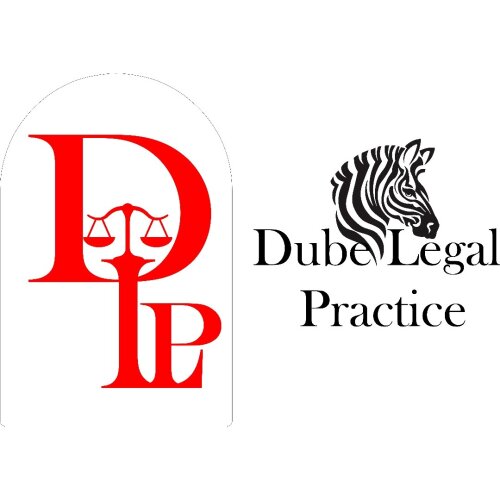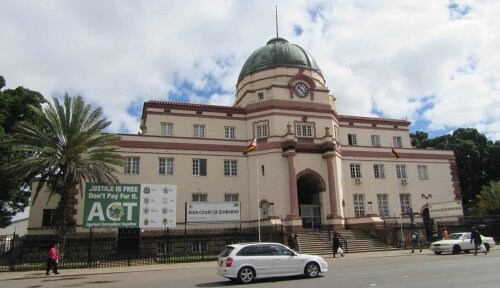Best Civil & Human Rights Lawyers in Bulawayo
Share your needs with us, get contacted by law firms.
Free. Takes 2 min.
List of the best lawyers in Bulawayo, Zimbabwe
About Civil & Human Rights Law in Bulawayo, Zimbabwe
Civil and human rights law in Bulawayo, Zimbabwe is guided by both the Constitution of Zimbabwe and various international agreements to which Zimbabwe is a party. Civil rights ensure individuals are protected from discrimination and have equal access to opportunities, due process, and social freedoms. Human rights focus on upholding the dignity, freedom, and equality of every person. In Bulawayo, these rights are particularly crucial as the city is diverse and often faces complex social and political challenges. Legal protections cover many areas, including protection from unlawful detention, rights of association, freedom of speech, and protection from discrimination based on gender, ethnicity, religion, or political affiliation.
Why You May Need a Lawyer
People in Bulawayo often seek legal representation in civil and human rights matters for several reasons. You may need a lawyer if you believe your rights have been violated by private individuals, companies, or government officials. Some common situations include facing discrimination at work or in schools, unlawful arrest and detention, restrictions on freedom of speech, police misconduct, denial of access to government services, or participating in peaceful protests and facing retaliation. Lawyers can provide advice, file complaints, represent you in court, and help you secure protection or compensation for rights violations.
Local Laws Overview
Zimbabwe's Constitution, especially Chapter 4 - Declaration of Rights, is the cornerstone for civil and human rights protections. Local statutes such as the Public Order and Security Act and the Maintenance of Peace and Order Act affect how rights are exercised, particularly regarding assembly and protest. The Labour Act offers protections against workplace discrimination. Courts in Bulawayo have authority in enforcing these rights, and various governmental and non-governmental agencies play roles in monitoring, reporting, and advocating for compliance with these laws. It is important to remember that while laws on paper are strong, the enforcement and realization of these rights sometimes face practical hurdles.
Frequently Asked Questions
What are my basic civil and human rights in Bulawayo?
Every person has the right to equality, privacy, freedom of expression, protection from violence, due process under the law, and access to education, health, and social services.
Can I report discrimination or abuse to the authorities?
Yes, you can report rights violations to the police, the Zimbabwe Human Rights Commission, or through a qualified legal practitioner.
Is freedom of speech guaranteed for everyone?
Freedom of speech is protected but subject to laws regulating hate speech, public order, and national security. Criticism of government or officials is legally permitted but sometimes discouraged in practice.
What should I do if I am unlawfully arrested or detained?
Contact a lawyer immediately, request to see any arrest warrants, and exercise your right to remain silent until you get legal advice.
Are there legal limits to peaceful protests in Bulawayo?
Peaceful protests are allowed, but you must notify authorities in advance. Restrictions often apply to the time, place, and manner of protests under security and public order laws.
How do I challenge unfair treatment or discrimination at work?
File a complaint with your employer, approach the Labour Court, or seek help from the Zimbabwe Human Rights Commission or trade unions.
Can foreign nationals also access civil and human rights protections?
Yes, the Constitution provides fundamental rights to everyone within Zimbabwe, although some rights, such as voting, are reserved for citizens.
How are children’s rights protected in Bulawayo?
Laws and institutions such as the Child Protection Society and Family Courts ensure children are safeguarded from abuse, neglect, or exploitation.
What role do NGOs play in defending human rights?
Non-governmental organizations provide legal support, public education, advocacy, and sometimes facilitate dialogue between victims and authorities.
What is the procedure for filing a human rights complaint?
Gather evidence, document your experience, consult a lawyer, and submit a written complaint to the Zimbabwe Human Rights Commission, relevant government office, or the courts.
Additional Resources
Several organizations and institutions in Bulawayo and Zimbabwe offer assistance:
- Zimbabwe Human Rights Commission: A government body that investigates human rights abuses and provides recommendations. - Zimbabwe Lawyers for Human Rights: Offers legal aid and represents clients in civil and human rights cases. - Legal Resources Foundation: Provides legal information, representation, and education. - Bulawayo Legal Projects Centre: Focuses on access to justice for vulnerable groups. - Civic Society Organizations: Many local groups focus on advocacy, rights education, and community support. - Public Protector or Ombudsman Office: Deals with complaints against government administration. - Parliamentary and Senate Offices: Constituent offices can sometimes intervene in systemic rights issues.
Next Steps
If you believe your civil or human rights have been violated in Bulawayo, gather and preserve all relevant evidence, such as documents, letters, photographs, or witness statements. Seek confidential legal advice as early as possible. Contact a reputable civil and human rights lawyer or an established legal aid organization. If you are in immediate danger or require urgent intervention, approach the nearest police station and notify them of your need for protection. For non-urgent matters, lodging a complaint with the Zimbabwe Human Rights Commission is a recommended step. Always keep records of your communications and legal steps taken, and consider engaging with a support group or advocacy organization for additional assistance throughout the process.
Lawzana helps you find the best lawyers and law firms in Bulawayo through a curated and pre-screened list of qualified legal professionals. Our platform offers rankings and detailed profiles of attorneys and law firms, allowing you to compare based on practice areas, including Civil & Human Rights, experience, and client feedback.
Each profile includes a description of the firm's areas of practice, client reviews, team members and partners, year of establishment, spoken languages, office locations, contact information, social media presence, and any published articles or resources. Most firms on our platform speak English and are experienced in both local and international legal matters.
Get a quote from top-rated law firms in Bulawayo, Zimbabwe — quickly, securely, and without unnecessary hassle.
Disclaimer:
The information provided on this page is for general informational purposes only and does not constitute legal advice. While we strive to ensure the accuracy and relevance of the content, legal information may change over time, and interpretations of the law can vary. You should always consult with a qualified legal professional for advice specific to your situation.
We disclaim all liability for actions taken or not taken based on the content of this page. If you believe any information is incorrect or outdated, please contact us, and we will review and update it where appropriate.
Browse civil & human rights law firms by service in Bulawayo, Zimbabwe
Bulawayo, Zimbabwe Attorneys in related practice areas.










